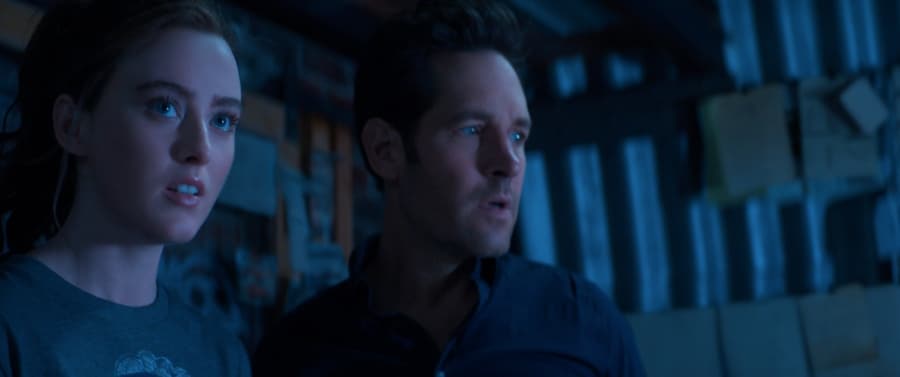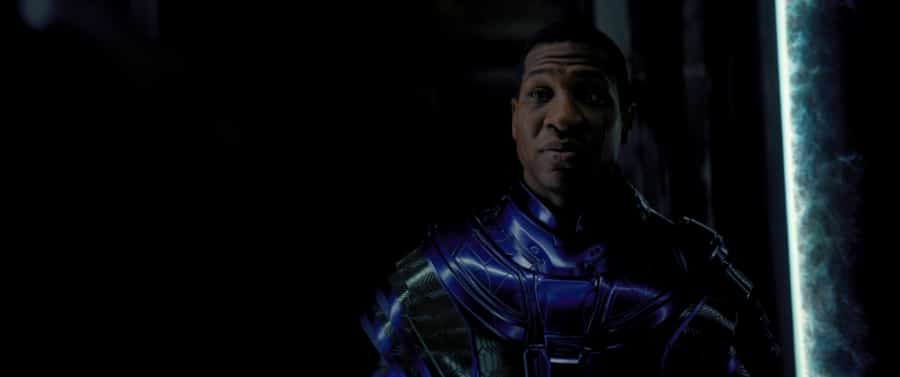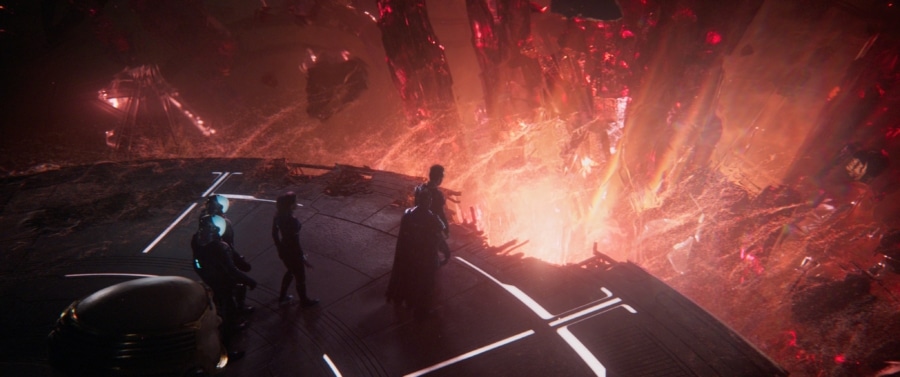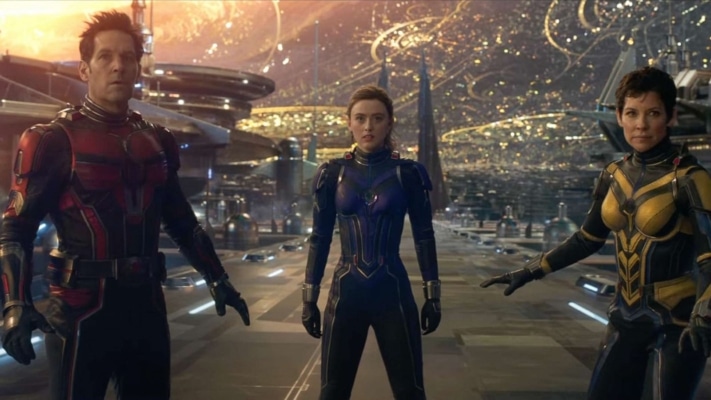Phase 5 of the MCU has been talked about forever. The steps to the next big Marvel event of Avengers: The Kang Dynasty have finally started to move forward for Marvel fans and not-so-Marvel fans. Last year’s D23 event featured several Marvel Studios properties, and the path to the Multiverse event seemed clear. Ant-Man and the Wasp: Quantumania is the first step into that promising journey; however, as a standalone movie, it’s a step in the wrong direction.
Ant-Man and the Wasp: Quantumania is the third go with director Peyton Reed. The cast features Paul Rudd (Scott Lang / Ant-Man), Evangeline Lilly (Hope Van Dyne / Wasp), Michelle Pfeiffer (Janet Van Dyne), and Michael Douglas (Dr. Hank Pym) making a return. Newcomers Kathryn Newton (Cassie Lang) and Jonathan Majors (Kang The Conqueror) fill out the rest of the main cast with Jeff Loveness on writing duties.
The plot for Ant-Man and the Wasp: Quantumania is primarily brought together to set up a lot for The Multiverse Saga. Evidence of this becomes slightly too conspicuous at the 20-30-minute mark. It begins to slowly wedge in with the idea of exploring this new universe and the character growth the movie is trying to reach. The wedge causes some story beats to slack or fall with a thud. Even the emotional beats that should hit hard are afterthoughts as the Ant-Man and the Wasp: Quantumania plot moves forward.

The father-and-daughter relationship between Scott and Cassie can barely advance or go anywhere of value. It’s not until the third act kicks in that it desperately tries to play catch up. Unfortunately, Loveness’s lack of experience writing for feature films causes these issues and more throughout the movie.
Furthermore, the fact that Loveness is writing Avengers: The Kang Dynasty — the next huge Marvel event — gives me a strong feeling of trepidation.
The possibility of turning the film into a “fish out of water” story in a subatomic world is intriguing. There are many directions to take this setting and how the characters interact with it. Yet, the film sometimes seems hollow and empty, and the setup for future MCU movies takes its place. For example, showcasing the history of Kang and Janet battling for dominance in the Quantum Realm could’ve opened the door to comment on survival and the effects of time lost. But Ant-Man and the Wasp: Quantumania slammed that door pretty quickly and left me scratching my head.
There’s a revolution that Janet was involved in during her time in the Quantum Realm, but I’m never given enough detail even to keep my interest. A good chunk of the storyline is left in the dust, and the impending Multiverse War is brought up repeatedly. Honestly, I got Iron Man 2 vibes when that movie was primarily used for the eventual Avengers movie.
The film’s acting is “alright” for the most part—Paul Rudd is Paul Rudd-ing his way through the movie with his charm and style of comedy. Evangeline Lilly is mainly stilted and has rare touching moments between her and Pfeiffer. Even Lilly’s interaction with Rudd is more platonic than affectionate. Michael Douglas takes a one-tone method of acting with his character, and it’s very noticeable. Sadly, Newton tries to make her addition to the MCU worthwhile, but it doesn’t come off as genuine. It made me wish that Emma Fuhrmann was given a shot at the Cassie character before Marvel Studio’s kicked her to the curb.
Nevertheless, Majors is a great inclusion to the MCU.

The actor has risen in the ranks of stardom since his first serious role in The Last Black Man in San Francisco. The very same movie had put Majors on Marvel Studios’ radar. His casting in the MCU was the right choice for being the Thanos-level baddie for the franchise. The guy delivers on every scene and tries his damndest to carry the rest cast. Majors has a presence that had me wanting more, and I can’t wait to see how he interacts with other MCU characters.
One of the most significant topics that the internet has talked about is the Ant-Man and the Wasp: Quantumania direction and CGI. Reed makes do with what he can with the script from Loveness. The director has his moments by fully embracing the silliness of Marvel Comics and bringing it into part of the MCU. It’s a great reminder of Marvel Comics’ history of going off-kilter with their stories and characters. The MCU doesn’t have to be taken too seriously in terms of tone; the movie is an excellent example of utilizing that positively.
Even the live-action version of M.O.D.O.K, played by a very big-head rendering of Corey Stoll, goes in hard at the ludicrous nature of the movie.
The CGI is, for the most part, not that bad, but it could’ve been better. There are apparent moments in Ant-Man and the Wasp: Quantumania where the green screen is used, which took me out of the film. The movie continues to follow this trend of Marvel Studios not taking their time to correctly render their projects or let the VFX artists finish their work. For example, there’s a scene when Scott is teaching Cassie how to fight using Pym particles. The technique is the standard in Ant-Man movies, but the VFX looks dated and even worse than the first film in this trilogy.

The rest of the CGI culminated to a serviceable climactic battle, but the damage from the movie’s VFX/technicolor vomit splat-style had already been done.
Peyton Reed, the cast, writer, and even Marvel Studios, had good intentions to give the audience more of that MCU we’ve grown accustomed to. Unfortunately, their chance of leaning into the whacky nature of the comics and fantastic acting from Johnathan Majors couldn’t save Ant-Man and the Wasp: Quantumania. Nevertheless, I like the idea that we’re finally in Phase 5 and can’t wait to see what comes from future MCU movies. Sadly, I wish Marvel Studios had put their best foot forward.

